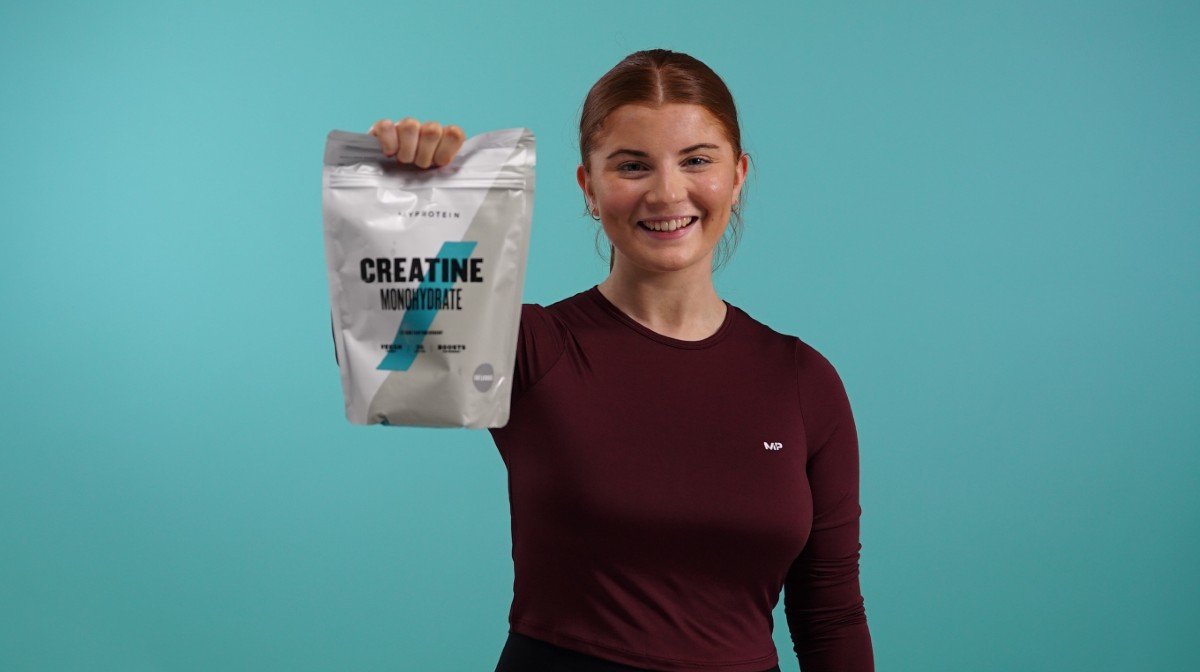
As you probably know by now, we love talking about protein. So this episode of Nutritionist Explains with Richie has us very excited, as he talks all about when’s the best time to take protein to maximise muscle gains. Spoiler alert: if you’ve only been focusing on getting protein in after a workout, you’re missing out.
There's much discussion about protein for building muscle — when to take it, how much to take, and what type to take. Richie’s going to separate fact from fiction and guide you on when and how to take protein to build some serious muscle.
Protein timing & distribution
One of the most common questions Richie hears from his clients is: “am I getting enough protein?”. But while the amount of protein we consume per day is incredibly important, particularly for muscle growth, the timing and distribution of it is just as important.
If you’re looking to build muscle mass, you should be aiming for about 1.6-2.4g of protein per day per kilogram of body weight. So if you weigh 70kg (about 11 stone) you’ll need 112-168g of protein per day.
But there’s more to it than that. It's time to look at when you’re consuming protein.
Richie says it's common for people to have an uneven protein distribution. Many people have a small amount of protein at breakfast, slightly more at lunch, and most of it in the evening at dinner, rather than spreading intake evenly throughout the day.
Distributing protein intake evenly throughout the day will enable you to optimise muscle growth. But why? Well, Richie says it’s all about muscle protein synthesis (MPS).
Muscle Protein Synthesis
Stimulating the process of MPS is the most important thing you can do outside of the gym to build muscle. And to stimulate it for optimal muscle building, you need to be getting enough protein at every meal.
This roughly works out to 0.4-0.5g of protein per kilogram of bodyweight, per meal. So for example, a 70-80kg person should be aiming for 30-40g of protein in every meal.
Any more protein than this doesn’t increase MPS any further. So having a big meal at the end of the day with 60-70g of protein won’t make up for a lack of protein (and therefore MPS) earlier in the day.
Richie gives a helpful example. Let's say you get 10g of protein at breakfast, 20g at lunch and 60g at dinner. You might be getting 90g of protein in that day, but you’ll only be optimising muscle protein synthesis once — at dinner — when you could be stimulating it throughout the day.
How do I increase my protein intake?
There are loads of ways to increase your protein intake. And with bars and shakes galore, it’s never been more convenient. Here are a few helpful tips on how to boost this muscle-building macro.
Plan, plan, plan
A key tip from Richie is to incorporate more meals into your day to distribute your protein intake more evenly. But this requires planning.
Firstly, Richie explains that MPS needs about three hours after stimulation before it can be started up again. This is called the refractory period.
A good rule of thumb is to aim for a dose of protein roughly every three hours. (Obviously this excludes the eight hours you should be sleeping!) That's about six protein doses throughout the day. This seems like a hell of a lot of protein, but it has been shown to be necessary for bodybuilders to maximise muscle growth.
However, this much eating isn’t for everyone as it’s a lot of protein and requires serious planning. So, if protein every three hours isn’t doable for you, try to aim for four high-protein meals throughout the day.
Don’t just dose up on protein after workouts
We've all heard the advice that you have to get a protein shake in half an hour after your workout. But weight training’s effects on MPS can last for up to 48 hours after a session.
Focus on getting around four high-protein meals in throughout the day — ranging from 20-40g of protein depending on your body weight — or a dose of protein every three hours.
Most of this protein ought to come from food sources as they have other key nutrients your body needs. However, adding in shakes is an easy and convenient way to hit your protein goals, so consider trying a mixture of both.
Take home message
Macros can be a minefield. But with these simple tips from Richie, it’s a lot easier to navigate.
To optimise your muscle growth, spread your protein intake evenly throughout the day. Getting a decent dose of protein in at every meal. Add an egg on top of your morning toast, some peanut butter, or get on board with protein oats. You'll be biceps-curling like Richie in no time.
READ THESE NEXT:

Simple But Flawed, BMI Explained
Richie breaks down the facts of the technique founded in the 1800s.

Creatine Isn't Just For Bulking
Yet more about our most talked about supplement.
Our articles should be used for informational and educational purposes only and are not intended to be taken as medical advice. If you're concerned, consult a health professional before taking dietary supplements or introducing any major changes to your diet.








